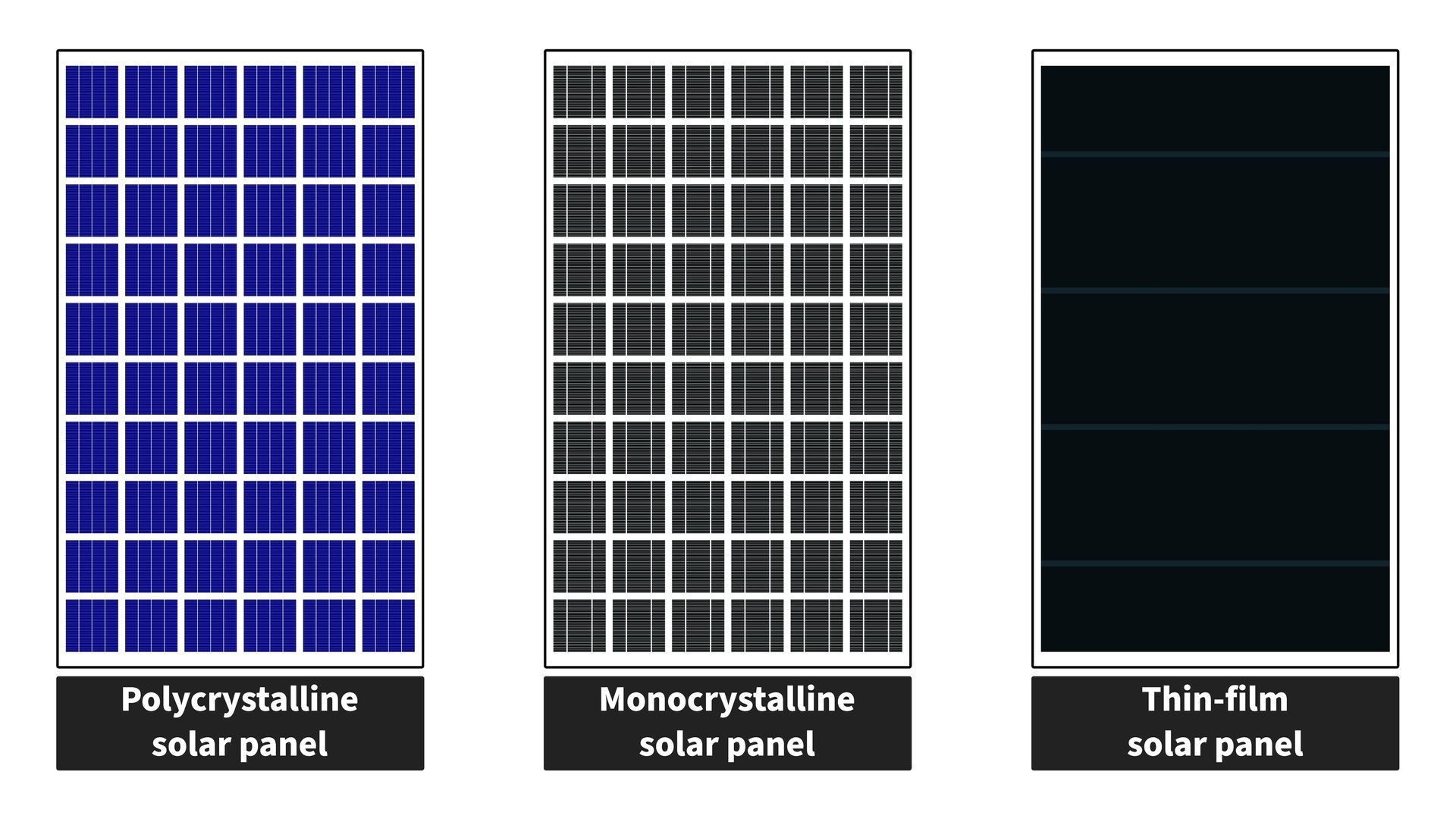Which Type of Solar Panel is Best for My Home?
Investing in solar energy is a smart move for homeowners looking to reduce their carbon footprint and save on energy bills. However, with various types of solar panels available, it can be overwhelming to decide which one is right for your home. To help you make an informed choice, we’ll explore the different types of solar panels, their benefits, and how to determine the best type of solar panel for your needs.
What Are the Different Types of Solar Panels?

When choosing solar panels for home use, three main types are typically available:
Monocrystalline panels are made from single-crystal silicon, giving them a sleek, uniform appearance. These panels are known for their high efficiency and performance, especially in sunny climates like Florida.
Advantages:
- Highest efficiency, typically 20% or higher
- Long lifespan (often over 25 years)
- Require less roof space due to greater energy output per square foot
Disadvantages:
- Higher cost compared to other types of solar panels
Polycrystalline panels are made from multiple silicon crystals melted together. They have a blue, speckled look and are slightly less efficient than monocrystalline panels.
Advantages:
- Lower cost compared to monocrystalline panels
- Good efficiency, usually around 15-17%
- Durable and long-lasting
Disadvantages:
- Less efficient in high heat or low light conditions
- Require more roof space to produce the same amount of energy as monocrystalline panels
Thin-film panels are made by layering photovoltaic materials onto surfaces like glass, plastic, or metal. They are lightweight and flexible, making them ideal for unconventional or curved surfaces.
Advantages:
- Flexible and versatile for installation on a variety of surfaces
- Perform well in low-light and high-heat conditions
- Lower upfront cost
Disadvantages:
- Lowest efficiency, typically around 10-12%
- Requires significantly more space to generate the same power as other types
- Shorter lifespan compared to crystalline panels
Which Type of Solar Panel is Best for Home Use?
The best type of solar panel for your home will depend on several factors, including your budget, roof size, energy needs, and local climate. Here’s a breakdown of how to choose:
For Maximum Efficiency and Limited Roof Space:
If you want the highest efficiency and have limited roof space, monocrystalline panels are the top choice. Their superior energy output means you can produce more power with fewer panels, making them ideal for smaller rooftops.
For a Balance of Cost and Efficiency:
Polycrystalline panels offer a more affordable solution while still delivering good efficiency. If you have more roof space and want to save on initial costs, polycrystalline may be the right option for you.
For Flexible Installations or Large Areas:
Thin-film panels are best suited for unique installations or homes with large surface areas where lower efficiency isn’t a major concern. They are also ideal if you need panels that perform well in cloudy or hot conditions.
How to Decide on the Best Solar Panel for Your Home
When considering which type of solar panel is best for home use, you should also think about the following:
- Budget: Higher efficiency panels like monocrystalline come at a higher cost but can save you more in the long run.
- Energy Goals: If you’re aiming to meet most or all of your energy needs through solar, a more efficient option like monocrystalline or polycrystalline may be best.
- Climate: In regions with high temperatures or frequent overcast days, thin-film panels might perform better. For areas with ample sunlight like Florida, monocrystalline or polycrystalline panels will deliver optimal results.
Solar Trek Inc. Can Help You Find the Perfect Fit For Your Home
Choosing the right solar panel can significantly impact the efficiency and cost-effectiveness of your home solar system. By considering the different types of solar panels and weighing factors such as your budget, roof size, and energy needs, you can find the best type of solar panel to suit your home.
If you’re ready to go solar or need help deciding which solar panel is right for your home, contact Solar Trek Inc. today for expert advice and a personalized quote.
